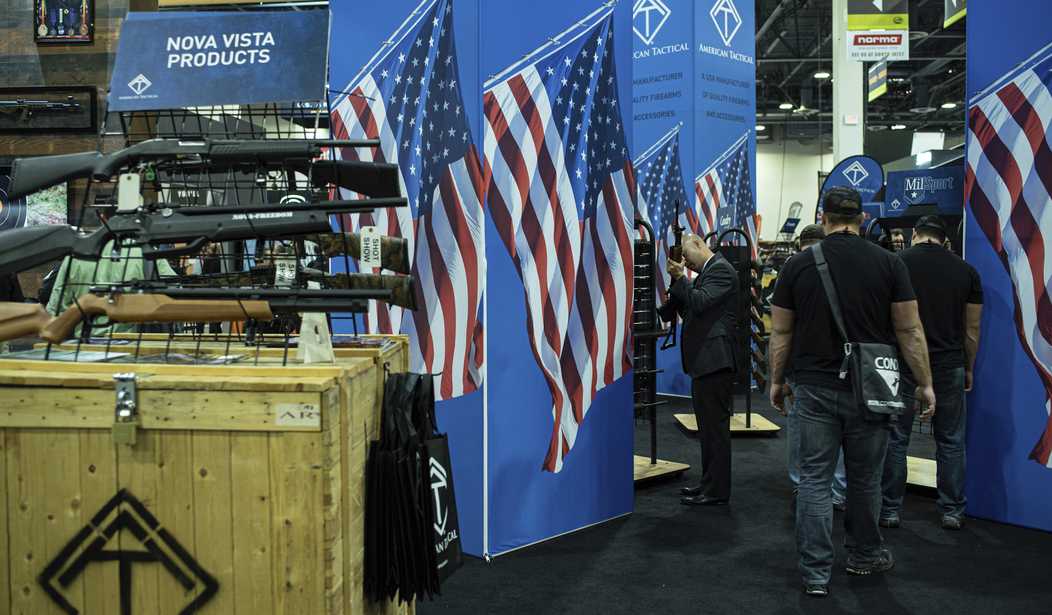Often when you read a poll you’ll find yourself surprised by how the answer to a question confounds your cultural expectations of America’s two parties.
This is not one of those polls.
Not a great look for Democratic patriotism here, although there’s a gender dynamic at work beneath the surface.

It’s not a coincidence that the split among Democrats precisely mirrors the split among women. American women skew Democratic. If women are much less likely to stay and fight than men are, inevitably Democrats will be much less likely as well.
Although that excuse only goes so far:
Wow. This sounds more terrifying than the men
pic.twitter.com/4113GMpQFJ— Bruno Maçães (@MacaesBruno) March 7, 2022
The Times interviewed a woman psychologist in Ukraine for a new story about the hatred for Russia inside her country right now and she told them that, while anger is a normal reaction, it should be diverted into useful channels — “such as making incendiary bombs out of empty bottles.”
Ukraine: Where even lady therapists are building molotov cocktails in their down time.
Another remarkable thing about the result above is that the question seems primed for “social desirability bias,” i.e. the pressure someone taking a poll feels to give the socially acceptable answer to a pollster even if their honest opinion is otherwise. At a moment like this, with the entire world celebrating the spirited defense of Ukraine by patriots like Zelensky, a question about whether you’d fight for your own country is the easiest “yes” you’ll ever give whether that’s the truth or not.
Yet Democrats still couldn’t get to 50 percent on it. We’re left to wonder how much of the 40 percent who said they’d fight were lying and just giving the socially acceptable answer. Maybe the true number of Democrats who’d stay put is far less.
One other fascinating detail not visible in the table is the sharp split between blacks and Latinos on the question. Just 38 percent of African-Americans say they’d fight versus 59 percent who’d leave. But among Hispanics, 61 percent would fight compared to 33 percent who’d leave. I assume that’s a cultural legacy of America’s historical persecution of blacks, generating a degree of national disaffection that persists to this day. Without that same history of persecution, Hispanics’ numbers are more in line with whites’ and Republicans’. That’s another ominous data point for Democrats who are tracking Latinos’ rightward political shift.
The other news in this new Quinnipiac poll is that Americans are feeling very, very hawkish towards Russia. The usual partisan gaps have disappeared, which tracks with other polling we’ve seen recently. If you watch Tucker Carlson every night and listened to Trump talk foreign policy at any point over the past six years, you’d be forgiven for assuming there’s a sizable Russia-curious, NATO-skeptical nationalist contingent within the GOP. Reality check: There isn’t. Here’s what Quinnipiac saw when it asked whether the U.S. should respond militarily if Russia attacks a NATO ally:

Republicans are firmer on NATO than independents are.
Americans are willing to bear other burdens to help Ukraine. Seventy-one percent overall and 66 percent of Republicans say they’re willing to pay more at the pump as the price for banning Russian oil, a remarkable result at a moment of already high inflation. There’s also strong support for admitting Ukrainian refugees into the U.S. at 78 percent, including 66 percent of Republicans. Biden gets a middling grade for his handling of the conflict so far at 42/45 but the discontent is due almost entirely to feelings that he hasn’t been tough enough on Russia. The White House just joined Europe on the equivalent of a coordinated nuclear strike on Russia’s economy and many Americans still want bigger munitions:

Overwhelmingly, the party of Trump and Carlson believes Biden’s been too soft on Putin. Some of that we might attribute to raw partisanship, the sense among righties that lefties are forever too weak on America’s enemies no matter what actions they’ve taken. (Revisit the first table up above for an example why.) But even a near-majority of Democrats want Biden to get tougher on Russia.
Uh, how? We’re sending weapons, we’re providing intelligence, we’ve sanctioned Russia into economic oblivion.
My guess is that many in the “not tough enough” group across the board have heard Zelensky’s pleas for a no-fly zone and resent the fact that the White House has dismissed the idea. Biden’s doing the right thing in that case by not embroiling the U.S. in the conflict in the skies over Ukraine, but many Americans may not realize what an NFZ would entail. They may think it’s some sort of decree rather than kinetic U.S. military action against the Russian air force, a development that would risk touching off a nuclear exchange.
Here’s the latest video from Zelensky. It’s not subtitled, unfortunately, but the optics are the important thing. He’s still in his office in Kiev despite knowing that Russian troops are looking for him. He’ll stay and fight.
Day 12 of Russia’s full-on invasion of Ukraine. Where’s President Zelensky?
“I’m staying in Kyiv. In my office. I’m not hiding. And I’m not afraid of anyone.”
The comic turned president has truly become a wartime leader. pic.twitter.com/dKbzYWwpbo
— Christopher Miller (@ChristopherJM) March 7, 2022







Join the conversation as a VIP Member